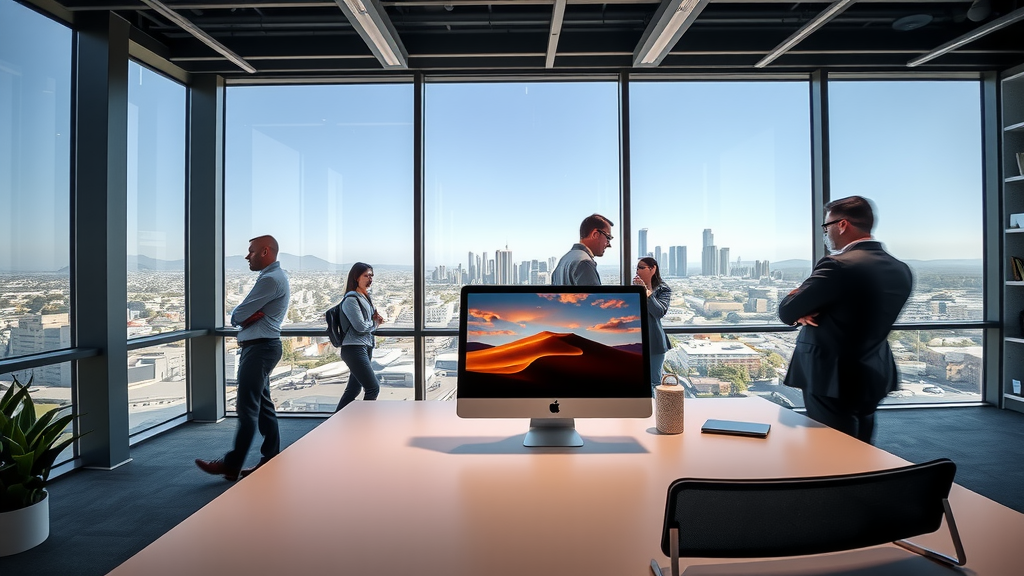
The question of whether it’s legal to record conversations in California revolves around stringent regulations aimed at privacy protection. Governed by Penal Code Section 632, it mandates the consent of all parties involved, diverging from states with one-party consent laws.
Engaging in audio recording without consent can result in severe legal outcomes, including privacy violations and potential lawsuits.
Understanding consent requirements is fundamental to avoid repercussions and maintain compliance with state laws.
The California consent statute is pivotal to recognizing recording legality.
Let’s explore the details of California’s strict consent laws and how they apply to everyday interactions.
California Consent Statute Explained
Details of the Two-Party Consent Law
Under the California consent statute, the two-party consent law mandates agreement from every participant before any recording. This safeguards privacy and includes both audio recording rules and video documentation.
Unauthorized recording consequences can be severe, including potential criminal liability and civil litigation.
Consequences for Unauthorized Recording
- Eavesdropping penalties: Breaking the two-party consent requirement can lead to misdemeanor consequences, with penalties including fines and jail time.
- Felony implications: In more serious cases, such as recording sensitive business meetings, charges may escalate to a felony.
Consent Scenarios in California
A common consent scenario involves business recording compliance. Suppose a company wants to record a customer service call. They must ensure the customer is informed and consent is acquired, either through an automated notification or explicit verbal agreement. Privacy expectations are crucial, particularly when recordings occur in presumed private settings.
Privacy protection is emphasized by the California consent statute to ensure personal and professional practices respect rights assurance. In media compliance contexts, journalist obligations require adherence to these recording statutes, differentiating lawful practices from privacy violations.

Understanding Two-Party Consent Law
The California consent statute significantly influences how recordings are made. California’s Penal Code Section 632 mandates consent from all parties in a private conversation before recording can proceed.
This requirement underpins the two-party consent law and differentiates it from one-party consent states such as New York, which only necessitates agreement from one participant.
To comply with audio recording rules and avoid privacy infringement, consider obtaining consent through clear verbal agreements or documented written forms.
Such practices are essential for protecting privacy expectations, especially when interacting with those covered by California’s recording statutes.
Unauthorized Recording Consequences Overview
The consequences of unauthorized recording highlight the importance of privacy protection. When privacy infringement occurs, the repercussions can include severe legal outcomes.
Notably, a 2006 case involving the illegal recording of a private meeting in California prompted substantial financial repercussions and clarified legal responsibilities regarding recording legality. Legal exceptions exist, like the public setting exception where consent might not be needed.
Nonetheless, understanding compliance strategies to navigate these exceptions helps avoid legal pitfalls.
Awareness of these ramifications supports adherence to lawful recording and enhances conversation legality while respecting personal boundaries.
Two-Party Consent Law
- California’s Penal Code Section 632 requires consent from all parties before recording a private conversation.
- One-party consent states like New York only require agreement from one participant for recording.
- Legal repercussions for unauthorized recording can include severe financial penalties.
- Understanding exceptions, such as the public setting exception, is crucial for legal compliance.
What Is Privacy Infringement
Privacy infringement occurs when there is unauthorized access or use of personal information, affecting both individuals and organizations.
As digital transformation progresses, such privacy violations have become alarmingly common.
Is it legal to record a conversation in California? Imagine unauthorized online data collection or workplace surveillance; these scenarios illustrate the potential legal and ethical repercussions.
Penal Code Section 632 plays a pivotal role in addressing these issues.
To safeguard your personal privacy, use encrypted communication channels and regularly update privacy settings on social media platforms.
Penal Code Section 632 Details
Penal Code Section 632, part of the California Invasion of Privacy Act, strictly prohibits unauthorized recordings, underlining the state’s dedication to privacy protection. This law enforces the two-party consent law, making it illegal to record conversations without all parties’ consent.
Unauthorized recording consequences may include fines, imprisonment, and potential civil lawsuits.
California consent statute
gained attention in a significant case involving a celebrity, which raised public awareness and set notable legal precedents.
Complying with audio recording rules and recording legality ensures lawful practices in audio recording.
Legal Implications of Privacy Infringement
The eavesdropping penalties under this law are noteworthy, as they entail legal outcomes such as fines and imprisonment.
Additionally, public setting exceptions exist, providing nuances in recording legality.
Legal requirements demand consent acquisition from all parties involved to prevent privacy violations and ensure lawful recording practices.
Significant Cases and Legal Outcomes
One notable case underscoring the California consent statute involved a high-profile celebrity lawsuit. This case not only highlighted the eavesdropping penalties under Penal Code Section 632 but also emphasized the importance of understanding privacy distinctions in media compliance.
As a result, this case set significant legal precedents and increased public awareness regarding recording guidelines and the importance of rights assurance in recording ethics.
Privacy Infringement and Legal Implications
- Privacy infringement involves unauthorized access or use of personal information.
- Penal Code Section 632 enforces the two-party consent law in California.
- Unauthorized recordings can result in fines, imprisonment, and civil lawsuits.
- Significant legal cases have highlighted the importance of understanding privacy laws.
Exploring Legal Outcomes Of Recording
The California consent statute intricately influences legal outcomes concerning audio recordings within the state. Breaching the two-party consent law can lead to serious unauthorized recording consequences.
Notable cases such as Kearney v.
Salomon Smith Barney exemplify the potential severity of privacy infringement through unauthorized recordings.
Legal outcomes may encompass
- civil lawsuits
- hefty fines
- or even imprisonment for substantial breaches
. Ensuring compliance with the California consent statute involves obtaining consent from all involved parties. This practice safeguards the legality of recordings and aids in preventing potential disputes over recording legality.
Audio Recording Rules In California
Delving into the Penal Code Section 632 unveils the specific recording statutes governing California’s audio recording rules. The mandate stresses the necessity for consent acquisition from all parties before recording. The law acknowledges public setting exceptions where conversation legality permits recording without consent, assuming no privacy is expected. An example is
a public event
, where recording is typically deemed lawful. By respecting these defined legal requirements, individuals can navigate the maze of compliance, avoiding the pitfalls of unauthorized recording consequences and aligning with California’s eavesdropping penalties and legal outcomes.
Recording Laws in California
- The California consent statute requires consent from all parties for legal audio recordings.
- Violating the two-party consent law can result in civil lawsuits, fines, or imprisonment.
- Public setting exceptions allow recording without consent if no privacy is expected.
- Notable cases like Kearney v. Salomon Smith Barney highlight the consequences of unauthorized recordings.
Is Recording Legal In Public Settings
Recording legality in public settings is a topic often misunderstood, yet it carries significant implications for those involved. Generally, public spaces like streets offer fewer privacy expectations, reducing the likelihood of privacy infringement.
However, semi-public areas such as restrooms still necessitate privacy protections, creating distinctions critical to understanding compliance strategies.
Avoiding unauthorized recording consequences in such settings requires an awareness of audio recording rules and knowledge of the California consent statute.
Understanding Privacy Expectations
The concept of privacy expectations varies greatly between public and private contexts.
Penal Code Section 632 emphasizes the different requirements for consent acquisition in private spaces compared to public areas where public setting exceptions may apply. For instance, while sidewalks may allow recordings without participant agreement, businesses must adhere to more stringent business recording compliance regulations, including automated notification systems.
Tips for Public Recording
In public settings, it’s wise to err on the side of caution.
If uncertain about privacy limitations in an area, seeking consent first or reviewing local privacy policies ensures better compliance with recording guidelines.
This proactive approach mitigates the risk of privacy violations and legal responsibilities, aligning with lawful practices and reducing the potential for breach consequences.
Eavesdropping Penalties And Exceptions
The ramifications of unauthorized recording can be severe, especially with California’s Penal Code Section 632. This legislation outlines the potential for misdemeanor consequences, or in some cases, felony implications for those who disregard twoparty consent laws.
Exceptions do exist.
Legal outcomes can vary when implied consent is assumed, or if the recording serves significant public interest, aligning with journalist obligations.
Strategizing Legal Defenses
Individuals can avoid common penalties by familiarizing themselves with audio recording rules and understanding the nuances of eavesdropping penalties.
Compliance strategies and knowledge of the recording legality in diverse settings are essential. The public setting exception often provides leniency, yet media compliance demands that professional practices honor interview rules and media consent obligations.
Awareness of state law comparison and law enforcement rules can further protect participants from privacy enforcement issues.
Proactive Compliance and Protection
Maintaining informed understanding consent and privacy protection practices forms the cornerstone of lawful recording activities. By following recording ethics, one can ensure a balance between documentation legality and personal implications.
Such approaches not only safeguard against violation impact but also enhance the rights assurance for all involved parties.
Recording Legality
- Public spaces generally have fewer privacy expectations, allowing for more freedom in recording.
- California’s Penal Code Section 632 requires two-party consent for recordings in private areas.
- Businesses must comply with stricter recording regulations, including automated notifications.
- Understanding local privacy policies and consent laws can prevent legal issues.
What Happens If I Miss Jury Duty Unintentionally
Steps To File A Small Claims Case For A Damaged Phone Simplified